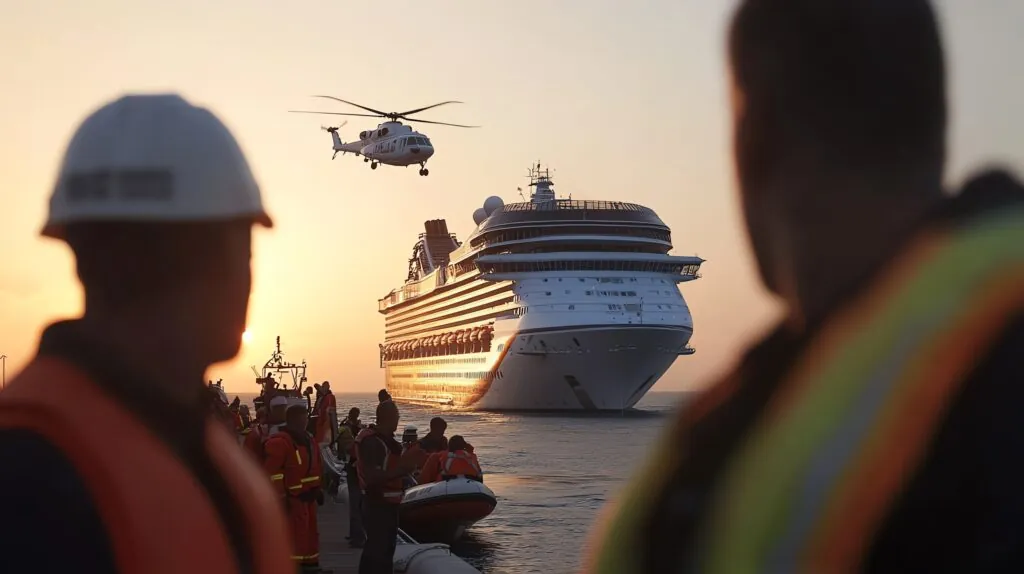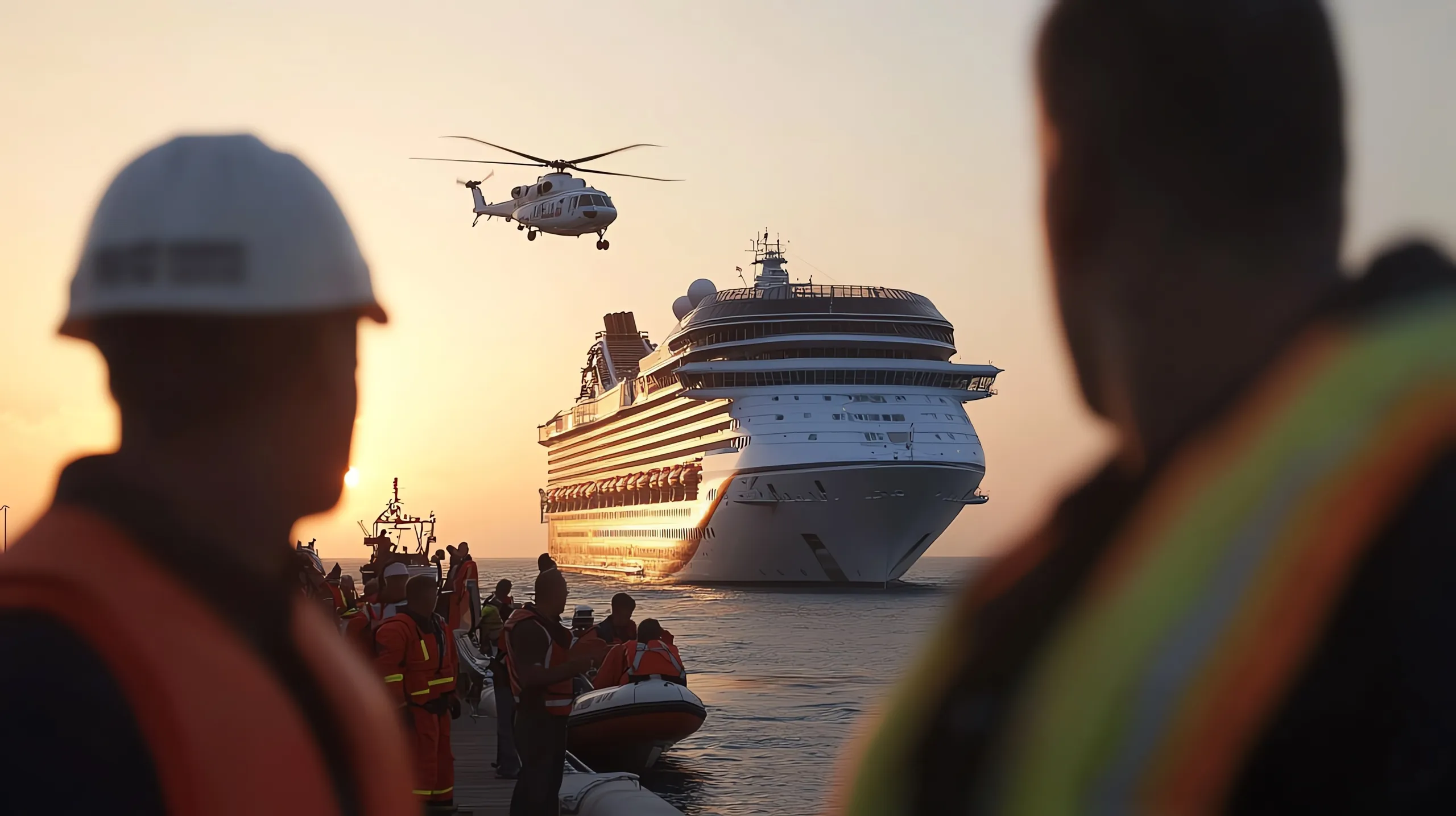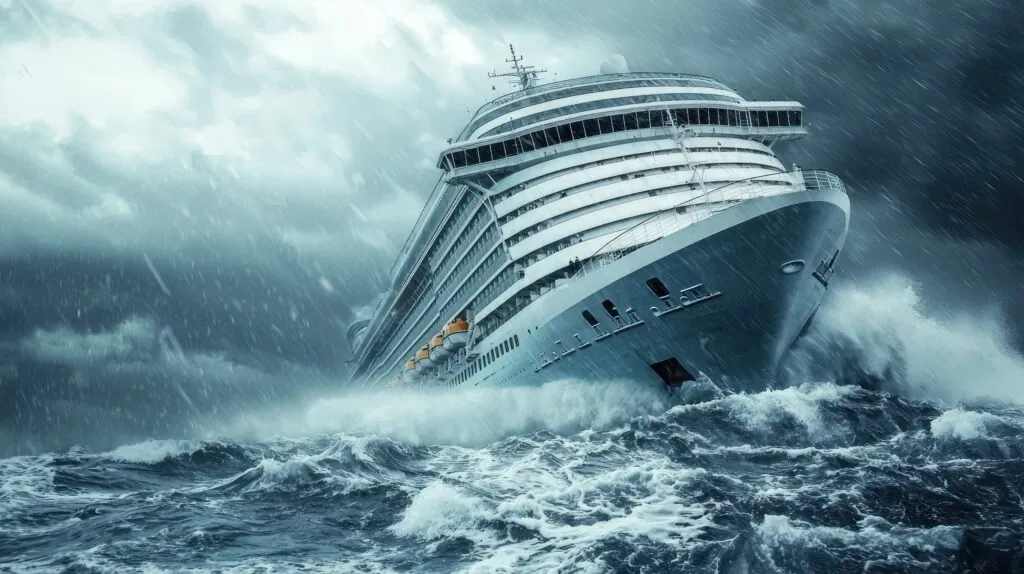When Cruise Ship Does Not Follow Its Evacuation Plan
Cruise vacations promise leisure, luxury, and adventure. But for the thousands of passengers who board each vessel, there is also an expectation of safety. Cruise ships are complex floating cities that must operate under strict international safety regulations. At the heart of these rules is the cruise ship evacuation plan, designed to protect lives in emergencies ranging from onboard fires to mechanical failures or severe weather events.

However, when cruise lines fail to properly implement these evacuation plans, the results can be tragic. Not only are lives put at risk, but these failures also have significant legal, financial, and reputational consequences for cruise operators. This article explores evacuation protocols, violations, real-world disasters, passenger rights, and legal options in depth.
Understanding SOLAS: The Global Standard for Maritime Safety
What is SOLAS?
The Safety of Life at Sea (SOLAS) Convention is an international treaty that sets safety standards for ships, including cruise vessels. First established in 1914 after the sinking of the Titanic, SOLAS remains the most important international treaty concerning maritime safety.
Key SOLAS Evacuation Requirements
Under SOLAS:
- All passengers must participate in a muster drill within 24 hours of embarkation.
- Ships must maintain fully functional lifeboats and emergency evacuation gear.
- Evacuation signage and lighting must be visible and operational.
- Crew members are required to undergo regular emergency training.
Failing to meet these requirements not only violates international law but also puts lives at risk during an actual emergency.
Common Safety Violations on Cruise Ships
Despite clear guidelines, many cruise lines have been cited for safety non-compliance. These violations often stem from negligence, poor maintenance, or the desire to maintain tight schedules.
Skipped or Abbreviated Muster Drills
Muster drills are not optional. Yet some cruise lines have been known to:
- Delay or cancel drills for passenger convenience
- Conduct “silent” drills without passenger participation
- Allow crew to bypass mandatory attendance
This creates a dangerous knowledge gap during real emergencies.
Lifeboat Deployment Failures
Another recurring issue is the improper maintenance or deployment of lifeboats. In some cases:
- Lifeboats have been found rusted or mechanically faulty
- Deployment systems have failed during inspections
- Crew have not been trained to operate them efficiently
These failures can turn a controlled evacuation into chaos.
Poor Communication and Emergency Response
When emergencies occur, time is critical. Yet many ships fail in:
- Providing timely alerts to passengers
- Coordinating effective communication among crew members
- Managing crowd control at muster stations
Inadequate emergency response planning only amplifies the risk of injury or death.
High-Profile Incidents That Highlight Evacuation Failures
Several tragic or near-tragic events have spotlighted the consequences of cruise evacuation failures.
Costa Concordia (2012)
In one of the deadliest maritime disasters in recent history, the Costa Concordia ran aground off Italy’s coast after the captain deviated from the approved route. The evacuation was mismanaged, delayed, and disorganized. Many lifeboats were unusable, and dozens of passengers drowned or were injured.
Carnival Triumph (2013)
After an engine fire disabled the ship, passengers were stranded for days in unsanitary conditions without power. The emergency plans proved grossly insufficient, and public outrage forced industry-wide reassessments of contingency planning.
Viking Sky (2019)
Mechanical failure amid stormy seas led to a dangerous evacuation using helicopters. Though loss of life was avoided, the incident exposed weaknesses in emergency response protocols and raised questions about decision-making under duress.
Legal Repercussions for Cruise Line Negligence
Fines and Regulatory Actions
When a cruise line violates safety protocols, authorities like the U.S. Coast Guard or port state control agencies can issue fines, suspend operations, or even detain the ship.
Civil Lawsuits and Class Actions
Passengers injured due to safety negligence often file lawsuits seeking compensation for:
- Physical injuries
- Emotional trauma
- Lost personal items
- Medical expenses
In cases involving widespread protocol failure, such as skipped drills or non-functional lifeboats, class action lawsuits can arise—potentially costing cruise companies millions in settlements.
Criminal Liability for Crew and Management
In rare but severe cases—such as the Costa Concordia incident—ship captains and senior staff may face criminal charges for gross negligence or manslaughter if lives are lost due to their decisions.
What Are Your Rights as a Cruise Passenger?
Many passengers are unaware that they have specific legal protections while at sea.
1. Right to Emergency Preparedness
You have the right to participate in a muster drill and receive clear instructions on how to respond in emergencies. Skipping or shortening this drill is a red flag and a violation of international law.
2. Right to Functional Safety Equipment
Lifeboats, fire extinguishers, emergency exits, and lighting must be maintained. If they’re not, the cruise line is liable for any resulting harm.
3. Right to Legal Recourse
If you’re injured or put in danger due to the ship’s failure to comply with evacuation protocols, you may:
- File an individual claim for damages
- Join a class action suit if others were affected
- Pursue a claim under maritime law, often specified in your cruise ticket contract
How Evacuation Drills Should Actually Work
Step-by-Step Process
- Notification: The captain or crew announces the start of the drill.
- Passenger Assembly: Everyone is guided to their designated muster station.
- Life Jacket Demonstration: Crew show how to wear and secure the life jacket.
- Safety Briefing: Passengers are briefed on evacuation routes, emergency signals, and what to do during an actual evacuation.
Importance of Compliance
If any of these steps are missing or performed hastily, it’s a sign that your cruise line may be cutting corners. In an emergency, this could cost lives.
What to Do If You See Safety Violations
Passengers can and should report safety issues. Here’s how to take action:
- Document the issue with photos, videos, and notes.
- Report immediately to ship officers or security staff.
- Speak with fellow passengers to confirm if others noticed the same problem.
- File a formal complaint with the cruise line upon disembarkation.
- Notify maritime authorities or port state control agencies.
- Consult a maritime lawyer, especially if the violation endangered your life or caused injury.
FAQ: Cruise Evacuation and Legal Protections
Can I sue a cruise line for skipping the evacuation drill?
Yes, passengers can pursue legal action if a cruise line skips a required muster drill. Under international maritime law, particularly the SOLAS convention, these drills are mandatory for all ships carrying passengers. If an emergency occurs and passengers are harmed due to lack of preparation, the cruise line may be found negligent and held liable in civil court.
What legal options do I have if I’m injured during a cruise evacuation?
If you’re injured because of a poorly executed evacuation—such as being trampled, falling, or receiving delayed medical attention—you may file a personal injury claim. These cases can involve compensation for medical expenses, pain and suffering, lost wages, and emotional trauma. It’s important to collect documentation of the incident and consult with a maritime lawyer as soon as possible.
Do cruise ships always follow the law when it comes to safety procedures?
While cruise ships are legally obligated to comply with safety protocols, enforcement varies. Inspections by authorities such as the U.S. Coast Guard do identify violations, and there have been documented cases of cruise lines skipping drills, neglecting lifeboat maintenance, or failing to communicate evacuation procedures effectively. Just because a cruise is popular or part of a well-known brand doesn’t guarantee perfect compliance.
What should I do if I notice a safety issue while onboard?
If you witness safety negligence, such as broken lifeboats, skipped drills, or crew members who seem untrained, report it to the ship’s officers immediately. Keep a record of what you saw, when it happened, and who was involved. Take photos if you can do so safely. Upon returning to port, you may file a complaint with maritime authorities or seek legal advice if you felt your safety was jeopardized.
Are safety standards the same on all international cruises?
Generally, yes. All internationally operating cruise ships must adhere to the SOLAS convention and other maritime laws. However, the level of enforcement may vary depending on the flag state (the country under which the ship is registered). Some flag states are known for lax oversight, while others maintain rigorous inspection and compliance standards.
Conclusion: Why Vigilance Matters on the High Seas
Cruise ships can offer extraordinary experiences—but only when operated responsibly. An evacuation failure is not just a regulatory issue; it’s a matter of life and death. When cruise lines neglect their duty to conduct proper safety drills, maintain evacuation equipment, or train their crew adequately, they place every person onboard in danger.
As a passenger, being aware of your rights and proactive about safety can help ensure your trip is memorable for the right reasons. And if things go wrong, you have the legal tools to hold negligent cruise operators accountable.
Contact The Cruise Injury Law Firm Today
If you’ve experienced or witnessed safety violations on a cruise, it’s essential to understand your rights. Maritime law is complex and often works in favor of the cruise line—but with the right legal guidance, you can protect yourself and your loved ones.
Don’t let negligence go unchallenged. Contact The Cruise Injury Law Firm today to review your case, understand your options, and ensure justice is served. Your safety at sea should never be compromised.






